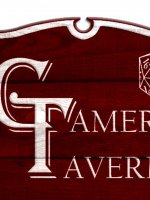This week, Morrus, Peter, and Jessica talk about what makes a good RPG Starter Set. In the news, what’s in Dragons of Stormwreck Isle, free dice and supplement on D&D Beyond, Cypher System gets an open license, Cyberpunk Edgerunners trailer released, and more! Plus a brand new sketch about unappreciative nobility.

(Note: Before anyone gets too excited, this image is a very early mock-up of a possible future product that Morrus tweeted earlier this week)
Subscribe on iTunes | Google Play | YouTube | TuneIn | Stitcher | Blubrry | Podbean | Spotify | Android
News
Dragons of Stormwreck Isle’s Table of Contents leaked D&D 5E - Here's Dragons of Stormwreck Isle's Table of Contents
Dossier Vecna free on D&D Beyond D&D 5E - Get The Vecna Dossier Free At D&D Beyond
News Digest for the Week of June 10 (D&D Beyond free Pride dice and statement about regionally blocked content, Cyberpunk Edgerunners trailer, ) News Digest for the Week of June 10
EN World thread from a user from Turkey who got the regionally blocked content message D&D 5E - D&D Beyond Self-Censorship: Pride Month Digital Dice Blocked In Some Countries
Cypher System released under Open Cypher System License Monte Cook Games Launches Open Cypher System License
WizKids D&D Book Tabs Organize Important 'D&D' RPG Tomes with 'D&D Book Tabs'
Critical Role NPC miniatures D&D: WizKids Adds Critical Role NPCs To Your Games If You Want 'Em
EN Publishing’s Over the Next Hill on IndieGoGo
--------------------
Kickstarters
Incredible Items Incredible Items
Gangs of Titan City Gangs of Titan City: Grimdark Urban Roleplaying
Return to Dark Tower Return to Dark Tower Fantasy Roleplaying Game
Find out all the RPG crowdfunding projects ending soon each week with Egg Embry’s RPG Crowdfunding News at RPG Crowdfunding News – Return to Dark Tower, Endless Realms, Incredible Items, and more
--------------------
Starter Sets
The One Ring Starter Set https://amzn.to/3MGL1X2
D&D Starter Set (2014 edition with Lost Mines of Phandelver) https://amzn.to/3NDIiyW
D&D Essentials Kit (2019 edition with Dragons of Icespire Peak) https://amzn.to/3zydNX0
Ikea Kallax Bookshelf KALLAX Shelf unit, black-brown, 30 3/8x57 7/8" - IKEA
Dune – Adventures in the Imperium: Agents of Dune Box Set https://www.modiphius.net/en-us/products/dune-agents-of-dune
Pathfinder 2nd Edition Beginner Box https://amzn.to/3aOnbeJ
Dicebreaker Best RPG Boxed Sets for Beginners https://www.dicebreaker.com/categories/roleplaying-game/best-games/best-tabletop-rpg-boxed-sets
--------------------
Please support us on Patreon at http://patreon.com/morrus
Don’t forget to join the Morrus’ Unofficial Tabletop RPG Talk Facebook group at https://www.facebook.com/groups/1033145023517295/ and join us on Discord at https://discord.gg/VAuxX8M
Ask your Awfully Cheerful Question on Twitter using the hashtag #AwfullyCheerfulQuestion, email morruspodcast@gmail.com, or contact us on TikTok at https://www.tiktok.com/@enpublishingrpg
--------------------
Hosts: Russ “Morrus” Morrissey, Peter Coffey, and Jessica Hancock
Editing and post-production: Darryl Mott
Theme Song: Steve Arnott
Kickstarter Game Research: Egg Embry
Kickstarter Game Theme: Lyrics by Russ Morrissey, Vocals by “drwilko”, Guitar by Darryl Mott
Malach the Maleficent played by Darren Morrissey
Check out all the media content from EN World at http://enliverpg.com
(Note: Before anyone gets too excited, this image is a very early mock-up of a possible future product that Morrus tweeted earlier this week)
Subscribe on iTunes | Google Play | YouTube | TuneIn | Stitcher | Blubrry | Podbean | Spotify | Android
News
Dragons of Stormwreck Isle’s Table of Contents leaked D&D 5E - Here's Dragons of Stormwreck Isle's Table of Contents
Dossier Vecna free on D&D Beyond D&D 5E - Get The Vecna Dossier Free At D&D Beyond
News Digest for the Week of June 10 (D&D Beyond free Pride dice and statement about regionally blocked content, Cyberpunk Edgerunners trailer, ) News Digest for the Week of June 10
EN World thread from a user from Turkey who got the regionally blocked content message D&D 5E - D&D Beyond Self-Censorship: Pride Month Digital Dice Blocked In Some Countries
Cypher System released under Open Cypher System License Monte Cook Games Launches Open Cypher System License
WizKids D&D Book Tabs Organize Important 'D&D' RPG Tomes with 'D&D Book Tabs'
Critical Role NPC miniatures D&D: WizKids Adds Critical Role NPCs To Your Games If You Want 'Em
EN Publishing’s Over the Next Hill on IndieGoGo
--------------------
Kickstarters
Incredible Items Incredible Items
Gangs of Titan City Gangs of Titan City: Grimdark Urban Roleplaying
Return to Dark Tower Return to Dark Tower Fantasy Roleplaying Game
Find out all the RPG crowdfunding projects ending soon each week with Egg Embry’s RPG Crowdfunding News at RPG Crowdfunding News – Return to Dark Tower, Endless Realms, Incredible Items, and more
--------------------
Starter Sets
The One Ring Starter Set https://amzn.to/3MGL1X2
D&D Starter Set (2014 edition with Lost Mines of Phandelver) https://amzn.to/3NDIiyW
D&D Essentials Kit (2019 edition with Dragons of Icespire Peak) https://amzn.to/3zydNX0
Ikea Kallax Bookshelf KALLAX Shelf unit, black-brown, 30 3/8x57 7/8" - IKEA
Dune – Adventures in the Imperium: Agents of Dune Box Set https://www.modiphius.net/en-us/products/dune-agents-of-dune
Pathfinder 2nd Edition Beginner Box https://amzn.to/3aOnbeJ
Dicebreaker Best RPG Boxed Sets for Beginners https://www.dicebreaker.com/categories/roleplaying-game/best-games/best-tabletop-rpg-boxed-sets
--------------------
Please support us on Patreon at http://patreon.com/morrus
Don’t forget to join the Morrus’ Unofficial Tabletop RPG Talk Facebook group at https://www.facebook.com/groups/1033145023517295/ and join us on Discord at https://discord.gg/VAuxX8M
Ask your Awfully Cheerful Question on Twitter using the hashtag #AwfullyCheerfulQuestion, email morruspodcast@gmail.com, or contact us on TikTok at https://www.tiktok.com/@enpublishingrpg
--------------------
Hosts: Russ “Morrus” Morrissey, Peter Coffey, and Jessica Hancock
Editing and post-production: Darryl Mott
Theme Song: Steve Arnott
Kickstarter Game Research: Egg Embry
Kickstarter Game Theme: Lyrics by Russ Morrissey, Vocals by “drwilko”, Guitar by Darryl Mott
Malach the Maleficent played by Darren Morrissey
Check out all the media content from EN World at http://enliverpg.com








